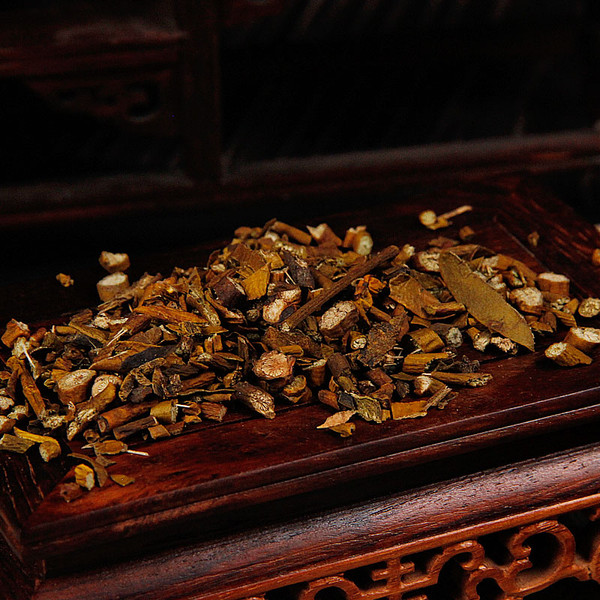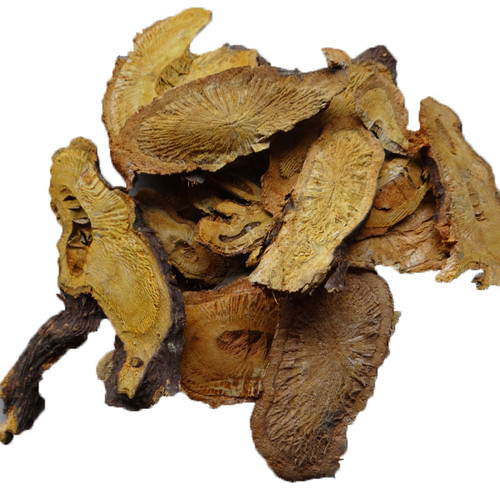Product Overview
Parts used: Dried stems and branches with leaves
TCM category: Herbs that dispel Wind and Dampness
TCM nature: Neutral
TCM taste(s): Bitter
Meridian affinity: Kidney Liver
Scientific name: Viscum coloratum
Other names: Mulberry Mistletoe, Coloured Mistletoe
Use of mistletoe (Hu Ji Sheng) in TCM
Please note that you should never self-prescribe TCM ingredients. A TCM ingredient is almost never eaten on its own but as part of a formula containing several ingredients that act together. Please consult a professional TCM practitionner, they will be best able to guide you.
Preparation: Remove impurities, wash slightly, cut in thick pieces and dry
Dosage: 9 - 30 grams
Main actions according to TCM*: Tonifies Liver and Kidneys. Expels Wind and Dampness. Nourishes the Blood. Calms the womb. Treats dry skin. Relieves hypertension.
Primary conditions or symptoms for which mistletoe may be prescribed by TCM doctors*: Rheumatism Rheumatoid arthritis Miscarriage Eczema Hypertension
Common TCM formulas in which mistletoe are used*:
For Wind-Damp obstruction or rheumatic aches and pains combine mistletoe with dong quai (Dang Gui), pubescent angelica roots (Du Huo) and clematis roots (Wei Ling Xian).
For stiffness and aching pain in the lower back with difficulty bending at the waist and/or knee pains combine mistletoe with pubescent angelica roots (Du Huo) and achyranthes roots (Niu Xi).
Key TCM concepts behind mistletoe (Hu Ji Sheng)'s properties
In Traditional Chinese Medicine (TCM), mistletoe are plants that belong to the 'Herbs that dispel Wind and Dampness' category. These herbs typically help treat what's called 'bi pain' (i.e. painful obstruction) in TCM. This roughly corresponds to arthritic and rheumatic conditions with pain, stiffness and numbness of the bones, joints and muscles.
Furthermore mistletoe are plants that are Neutral in nature. This means that mistletoe typically don't affect the balance in your body. Balance between Yin and Yang is a key health concept in TCM. Eating too many "Hot" (Yang) ingredients can lead to an imbalance whereby one has a Yang excess. The inverse is true as well: too many "Cold" (Yin) ingredients can lead to a Yin excess. The Neutral nature of mistletoe means that you don't have to worry about that!
Mistletoe also taste Bitter. The so-called "five elements" theory in Chinese Medicine states that the taste of TCM ingredients is a key determinant of their action in the body. Bitter ingredients like mistletoe tend to have a cleansing action on the body by clearing heat, drying dampness and promoting elimination via urination or bowel movements.
The tastes of ingredients in TCM also determine what organs and meridians they target. As such mistletoe are thought to target the Kidney and the Liver. According to TCM, the Kidneys do not only regulate the urinary system but also play a key role in the reproductive system and the growth and aging process of the body. The Liver on the other hand is often referred as the body's "general" because it is in charge of regulating the movements of Qi and body fluids. It also takes a leading role in balancing our emotions.








